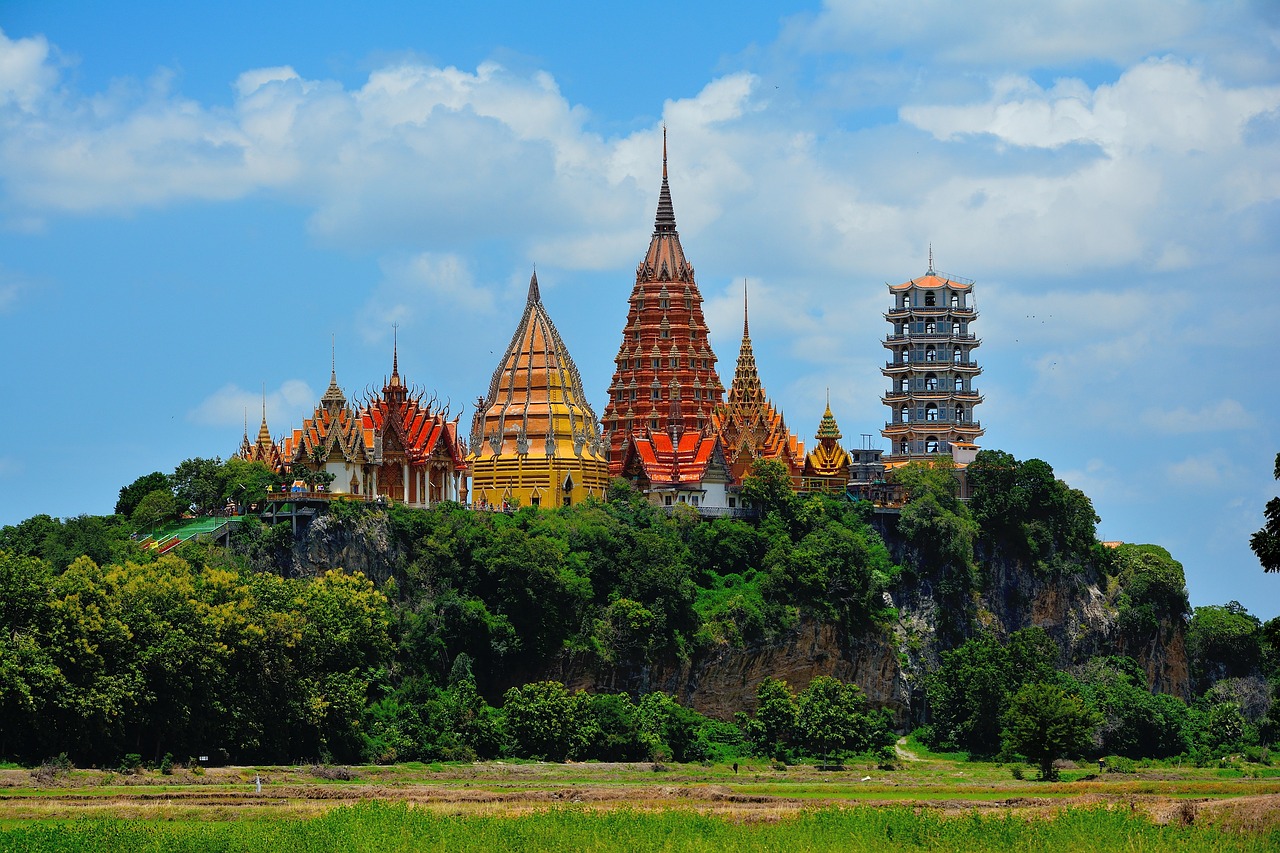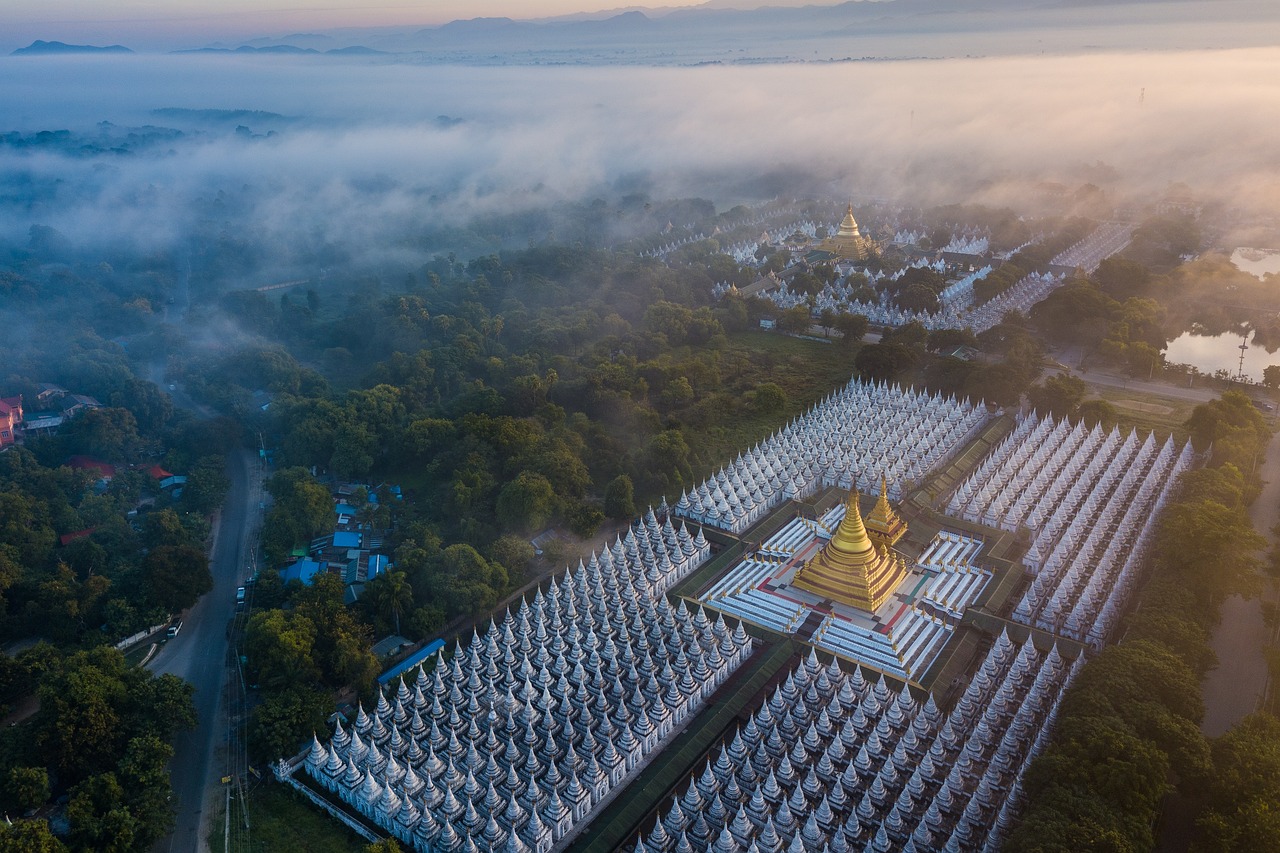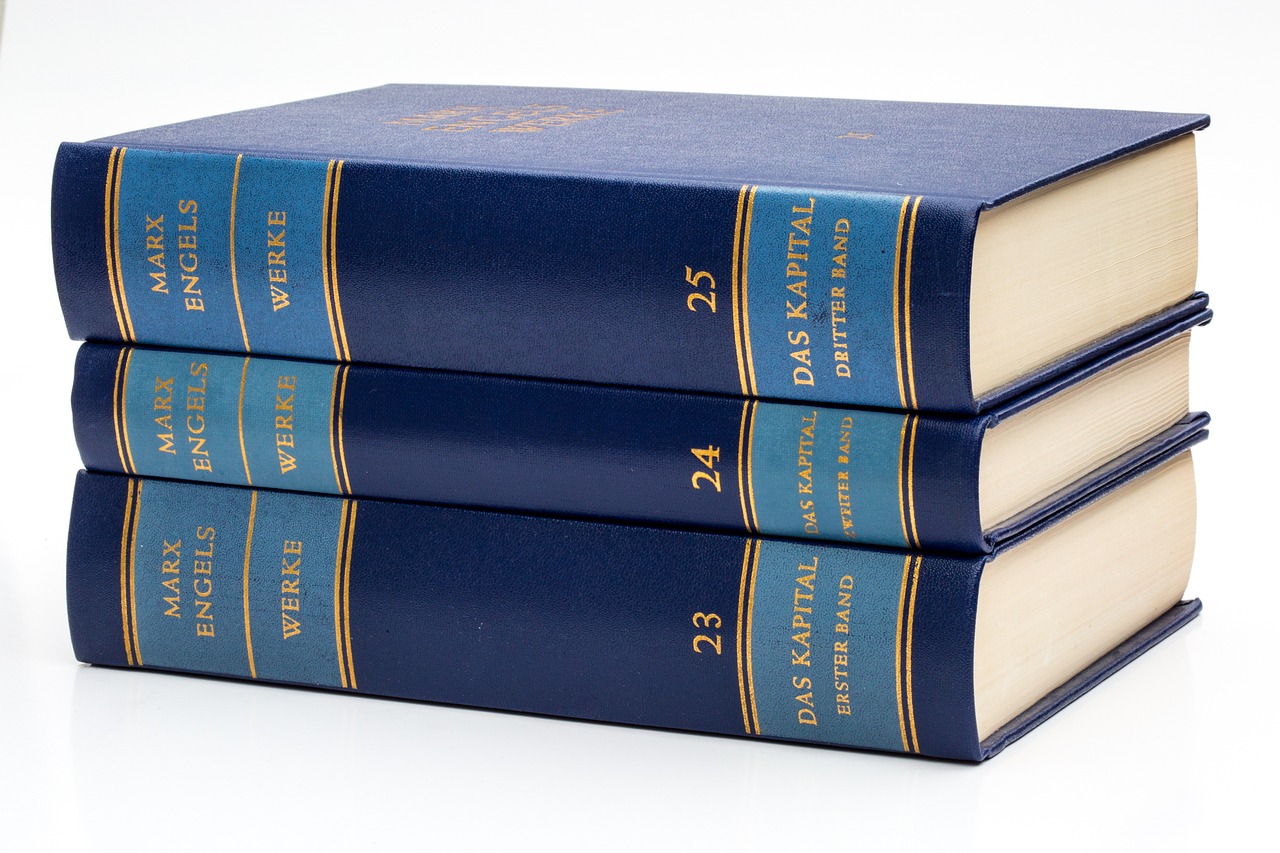The Philosophy of Daoism in Ancient China
Daoism, also known as Taoism, is an ancient Chinese philosophy that has deeply influenced the culture and thought of China for centuries. Rooted in the belief of living in harmony with the natural world, Daoism emphasizes the importance of balance, simplicity, and the concept of the Dao as the fundamental force governing the universe.
Originating in ancient China, Daoism has its roots in both religious beliefs and philosophical teachings. The foundational texts of Daoism, attributed to Laozi and Zhuangzi, delve into the nature of existence, the pursuit of inner peace, and the cultivation of virtues that align with the natural order of the cosmos.
Central to Daoist philosophy is the concept of Yin and Yang, symbolizing the dualistic nature of the universe and the balance between opposing forces. This harmony between complementary elements is seen as essential for achieving equilibrium and flow in all aspects of life.
One of the key principles of Daoism is Wu Wei, the art of non-action or effortless action. By following the path of least resistance and allowing events to unfold naturally, individuals can attain harmony and success by aligning themselves with the Dao.
Daoist practices also include inner alchemy and longevity techniques aimed at achieving physical immortality and spiritual enlightenment. These methods focus on cultivating the self, balancing energies, and attaining a state of harmony with the universe.
Ethical principles promoted by Daoism encompass virtues such as humility, compassion, simplicity, and living in accordance with the natural order of things. By embodying these values, individuals can lead a harmonious and virtuous life in alignment with the Dao.
The influence of Daoist philosophy extends beyond individual practices to impact various aspects of Chinese culture, including art, literature, medicine, martial arts, and governance. Its holistic approach to life has shaped the cultural landscape of ancient and modern China.
In contemporary society, the principles of Daoism continue to resonate, influencing mindfulness practices, holistic health approaches, and environmental sustainability efforts worldwide. The enduring wisdom of Daoism offers valuable insights into living in harmony with oneself, others, and the natural world.

Origins of Daoism
Daoism, also known as Taoism, has deep roots in ancient Chinese religious beliefs and practices. The philosophy emerged from the mystical traditions of shamanism and nature worship prevalent in early Chinese society. Over time, Daoism evolved into a philosophical system attributed to the legendary figures of Laozi and Zhuangzi. Laozi is traditionally regarded as the author of the foundational text of Daoism, the Tao Te Ching, which expounds on the principles of living in harmony with the Dao, the fundamental force governing the universe.
The origins of Daoism can be traced back to the concept of the Dao, which signifies the way or path that underlies all existence. Daoism emphasizes the interconnectedness of all things and the importance of aligning oneself with the natural order of the universe. This holistic worldview is reflected in the Daoist belief in the cyclical nature of life, where balance and harmony are essential for spiritual and physical well-being.
As Daoism developed, it incorporated elements of Chinese cosmology, including the principles of Yin and Yang. These opposing forces represent the dualistic nature of existence, where complementary energies interact to maintain equilibrium. The concept of Yin and Yang is central to Daoist philosophy, illustrating the interplay of light and dark, male and female, and other contrasting aspects of reality.

Key Concepts of Daoism
Exploring the foundational principles and beliefs of Daoism, an ancient Chinese philosophy that emphasizes harmony with nature, balance, and the concept of the Dao as the fundamental force governing the universe.
When delving into the , one encounters a rich tapestry of ideas that shape the philosophical landscape of this ancient tradition. At the heart of Daoism lies the notion of the Dao, the ineffable principle that underlies all existence. This concept emphasizes the importance of aligning oneself with the natural order of the universe, seeking harmony and balance in all endeavors.
Furthermore, Daoism extols the virtue of spontaneity, advocating for actions that arise effortlessly and in accordance with the flow of nature. This principle, known as Wu Wei, encourages individuals to embrace non-action and allow events to unfold organically, leading to a state of harmony and success.
In addition to Wu Wei, Daoism embraces the duality of Yin and Yang, symbolizing the complementary forces that govern the universe. This concept highlights the interconnectedness of opposites and the necessity of balance in all aspects of life.
Moreover, Daoism promotes the cultivation of inner virtues such as humility, compassion, and simplicity. By living in harmony with the natural world and embodying these ethical principles, individuals can attain spiritual enlightenment and align themselves with the Dao.
Through these key concepts, Daoism offers a profound philosophical framework that encourages individuals to seek harmony, balance, and spiritual fulfillment in their lives.
If you have questions about Daoism, you're not alone. Here are some commonly asked questions about this ancient Chinese philosophy:
- What is the significance of the Dao in Daoism?
- How does the concept of Yin and Yang influence Daoist beliefs?
- What are the core virtues promoted by Daoism?
- How has Daoism influenced Chinese culture throughout history?
- What are some modern applications of Daoist philosophy in today's world?

Yin and Yang
Yin and Yang are fundamental concepts in Daoist philosophy, symbolizing the dualistic nature of existence and the interplay of opposing forces in the universe. The concept of Yin represents the passive, receptive, and feminine aspects, while Yang embodies the active, assertive, and masculine qualities. Together, they form a harmonious balance that is essential for the functioning of the cosmos.
In Daoism, Yin and Yang are not seen as absolute opposites but rather as complementary forces that are interconnected and interdependent. Just as day transitions into night and winter gives way to spring, Yin and Yang are in a constant state of flux, symbolizing the cyclical nature of life and the ever-changing balance of energies.
One of the key principles of Yin and Yang is the idea of mutual transformation, where each force can transform into its opposite under certain conditions. This concept highlights the dynamic and interconnected nature of the universe, emphasizing the need for harmony and equilibrium in all aspects of existence.
Within the symbol of Yin and Yang, there is a small dot of each opposite color, signifying the presence of each within the other. This symbolizes the idea that no force is purely Yin or purely Yang, but rather a blend of both qualities that create harmony and balance.

Wu Wei: The Art of Non-Action
Wu Wei, often translated as "The Art of Non-Action," is a fundamental concept in Daoist philosophy that emphasizes the importance of effortless action and alignment with the natural flow of events. Rather than advocating for complete inaction, Wu Wei encourages individuals to act in a way that is spontaneous, harmonious, and in accordance with the Dao. It is about being in tune with the rhythm of the universe and allowing things to unfold naturally, without force or resistance.
Imagine a surfer riding a wave, effortlessly gliding with the movement of the water instead of fighting against it. This is akin to the principle of Wu Wei, where individuals learn to navigate life's challenges with grace and ease, adapting to circumstances without imposing their will upon the world. By practicing Wu Wei, one can achieve a state of flow where actions are performed effortlessly, leading to greater success and fulfillment.
According to Daoist teachings, excessive striving and overthinking can disrupt the natural order of things, leading to disharmony and imbalance. By embracing Wu Wei, individuals can cultivate a sense of inner peace and tranquility, allowing them to respond to situations with clarity and wisdom. It is about trusting the inherent wisdom of the universe and surrendering to the unfolding of life without resistance.
Wu Wei is not about passivity or laziness but rather about acting with intention and purpose while remaining detached from the outcomes. It is a paradoxical concept that encourages individuals to exert minimal effort while achieving maximum results. By practicing Wu Wei, one can cultivate a sense of spontaneity, creativity, and authenticity in their actions, leading to a more fulfilling and harmonious existence.

Immortality and Inner Alchemy
Immortality and Inner Alchemy are two fascinating aspects of Daoist philosophy that delve into the realms of physical longevity and spiritual enlightenment. In the quest for immortality, Daoists believed in the cultivation of the self through inner alchemy, a process of refining and purifying the body, mind, and spirit to achieve a state of transcendence. This intricate practice involved various techniques such as meditation, breath control, visualization, and the consumption of elixirs made from rare herbs and minerals.
Central to the concept of inner alchemy is the belief that by harmonizing the body's internal energies and balancing the forces of Yin and Yang, one could attain immortality and eternal life. Daoists sought to unlock the hidden potential within themselves, transforming their essence and achieving a state of oneness with the Dao, the fundamental source of all existence.
Through the practice of inner alchemy, individuals aimed to purify their Jing (essence), Qi (vital energy), and Shen (spirit), aligning these three treasures to achieve spiritual enlightenment and transcend the limitations of the physical body. The ultimate goal was not only to prolong one's life but also to attain a higher level of consciousness and spiritual awareness, transcending the cycle of birth and death.

Daoist Ethics and Virtues
Daoist Ethics and Virtues in ancient Chinese philosophy are deeply rooted in the principles of humility, compassion, simplicity, and living in accordance with the natural order of the universe. These ethical values guide individuals to lead a harmonious and virtuous life, aligning their actions with the flow of nature and the Dao. Daoism emphasizes the importance of humility, encouraging individuals to remain modest and avoid arrogance, recognizing the interconnectedness of all beings in the universe. Compassion is another fundamental virtue in Daoism, promoting kindness, empathy, and understanding towards all living creatures.
Simplicity is celebrated in Daoist ethics, advocating for a minimalist lifestyle free from unnecessary desires and attachments. By embracing simplicity, individuals can find inner peace and contentment, transcending materialistic pursuits to focus on spiritual growth and enlightenment. Living in accordance with the natural order of the universe involves respecting the balance and harmony of nature, recognizing the cyclical patterns of life and the interconnectedness of all living beings.
Daoist ethics also emphasize the importance of cultivating virtues such as patience, tolerance, and forgiveness in interpersonal relationships. By practicing these virtues, individuals can navigate conflicts with grace and wisdom, fostering harmonious interactions with others. The concept of non-contention is central to Daoist ethics, encouraging individuals to avoid unnecessary conflicts and strive for peaceful resolutions through dialogue and understanding.
Furthermore, Daoism promotes the idea of selflessness and service to others, encouraging individuals to contribute positively to their communities and society as a whole. By embodying virtues such as generosity, altruism, and selflessness, individuals can create a more compassionate and harmonious world, reflecting the interconnectedness of all beings in the universe.

Daoist Influence on Chinese Culture
Daoism, with its profound philosophical insights and spiritual wisdom, has left an indelible mark on Chinese culture throughout history. The influence of Daoist principles can be observed in various aspects of Chinese society, ranging from art and literature to medicine, martial arts, and governance. The teachings of Daoism have not only shaped the cultural landscape of ancient China but continue to impact modern Chinese society in significant ways.
One of the most notable areas where Daoist influence is evident is in Chinese art. Artists often draw inspiration from Daoist concepts of harmony, balance, and nature, creating works that reflect the interconnectedness of all things. Traditional Chinese paintings, for example, frequently depict scenes of nature infused with Daoist symbolism, such as the use of the Yin and Yang symbol to represent the dualistic forces at play in the universe.
Literature in China has also been deeply influenced by Daoist thought. Poets and writers often incorporate Daoist themes of simplicity, spontaneity, and the pursuit of inner peace into their works. Daoist ideas about the impermanence of life and the cyclical nature of existence have inspired profound reflections on the human experience, shaping the literary tradition of China for centuries.
Additionally, Daoism has had a significant impact on traditional Chinese medicine, with many healing practices and herbal remedies rooted in Daoist principles of balance and harmony. The concept of Qi, or vital energy, central to traditional Chinese medicine, is closely related to Daoist ideas about the flow of energy in the body and the importance of maintaining equilibrium for health and well-being.
In the realm of martial arts, Daoist philosophy has played a crucial role in shaping various disciplines such as Tai Chi and Qigong. These practices emphasize the cultivation of internal energy, mindfulness, and the integration of mind, body, and spirit – all core principles of Daoism. Martial artists often draw on Daoist concepts of softness overcoming hardness and the principle of yielding to achieve victory in combat.
Furthermore, Daoist principles have influenced governance in China, with rulers throughout history drawing on Daoist ideas of humility, compassion, and harmony to guide their leadership. The concept of ruling by virtue, advocated by Daoist sages, has had a lasting impact on Chinese political philosophy, shaping the ideal of the wise and benevolent ruler who governs in accordance with the natural order of the universe.

Modern Applications of Daoist Philosophy
Modern Applications of Daoist Philosophy have transcended ancient China and continue to influence various aspects of contemporary society. The principles of Daoism, with their emphasis on harmony, balance, and alignment with nature, have found resonance in modern mindfulness practices. Individuals around the world are increasingly turning to Daoist teachings to cultivate inner peace, reduce stress, and enhance overall well-being.
Moreover, the holistic health approaches inspired by Daoism have gained popularity in the fields of alternative medicine and wellness. Practices such as acupuncture, qigong, and tai chi, rooted in Daoist principles of energy flow and balance, are now widely recognized for their therapeutic benefits and contribution to physical and mental health.
Environmental sustainability efforts worldwide have also been influenced by Daoist philosophy, particularly in promoting a deep respect for nature and advocating for sustainable living practices. The concept of living in harmony with the environment, as espoused by Daoism, has become a guiding principle for many environmental activists and organizations striving to protect the planet for future generations.
Furthermore, the timeless wisdom of Daoism has permeated various aspects of contemporary culture, influencing art, design, architecture, and even business practices. The emphasis on simplicity, authenticity, and balance in Daoist philosophy has inspired creative minds and entrepreneurs to adopt a more mindful and holistic approach to their work, fostering innovation and sustainable growth.
In essence, the modern applications of Daoist philosophy serve as a testament to the enduring relevance and profound impact of this ancient Chinese wisdom in shaping a more harmonious, balanced, and sustainable world for all.
Frequently Asked Questions
- What is the Dao in Daoism?
The Dao, also spelled as Tao, is the fundamental concept in Daoism representing the natural order and the underlying principle that governs the universe. It is often described as the way or path that individuals should follow to achieve harmony and balance in life.
- Who were Laozi and Zhuangzi?
Laozi and Zhuangzi were prominent Chinese philosophers who played key roles in the development of Daoism. Laozi is traditionally credited as the author of the "Tao Te Ching," a foundational Daoist text, while Zhuangzi is known for his work "Zhuangzi," which further elaborated on Daoist principles.
- What is the significance of Yin and Yang in Daoism?
Yin and Yang symbolize the dualistic nature of existence in Daoist philosophy. They represent opposing forces such as light and dark, male and female, and emphasize the importance of balance and harmony between these complementary aspects to achieve equilibrium.
- How can one practice Wu Wei in daily life?
Wu Wei, the principle of non-action or effortless action, can be applied by aligning oneself with the natural flow of events, acting without force or resistance, and allowing things to unfold organically. It involves embracing spontaneity and adapting to situations with ease.
- What are some modern applications of Daoist philosophy?
Modern applications of Daoism include mindfulness practices, meditation techniques, tai chi, qigong, and holistic health approaches that focus on promoting balance, harmony, and well-being. Daoist principles also influence environmental sustainability efforts and stress reduction strategies.



















